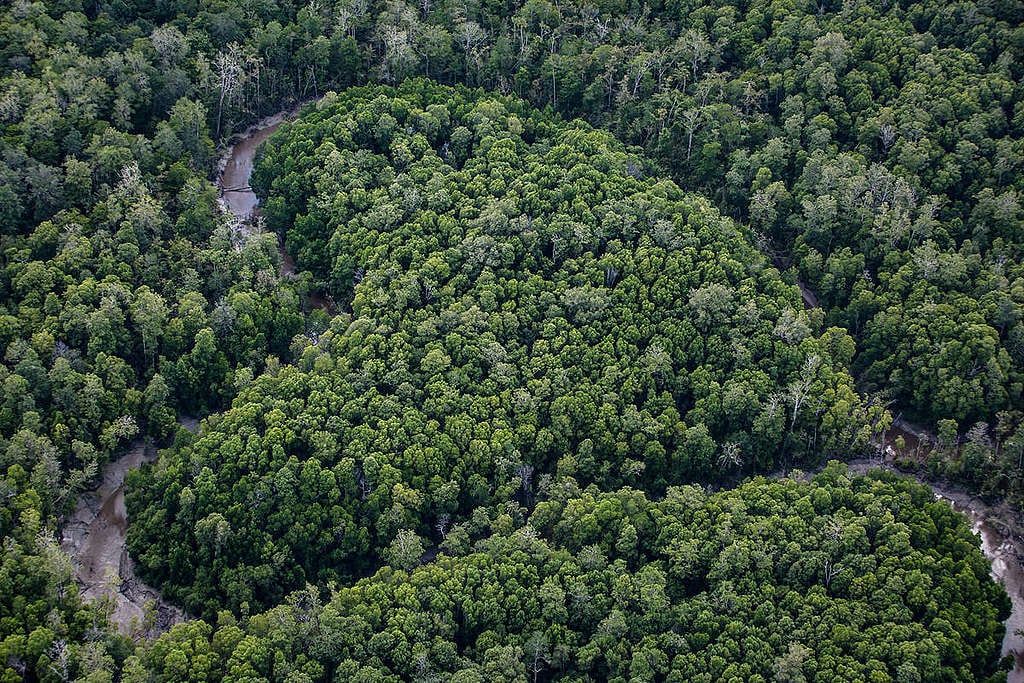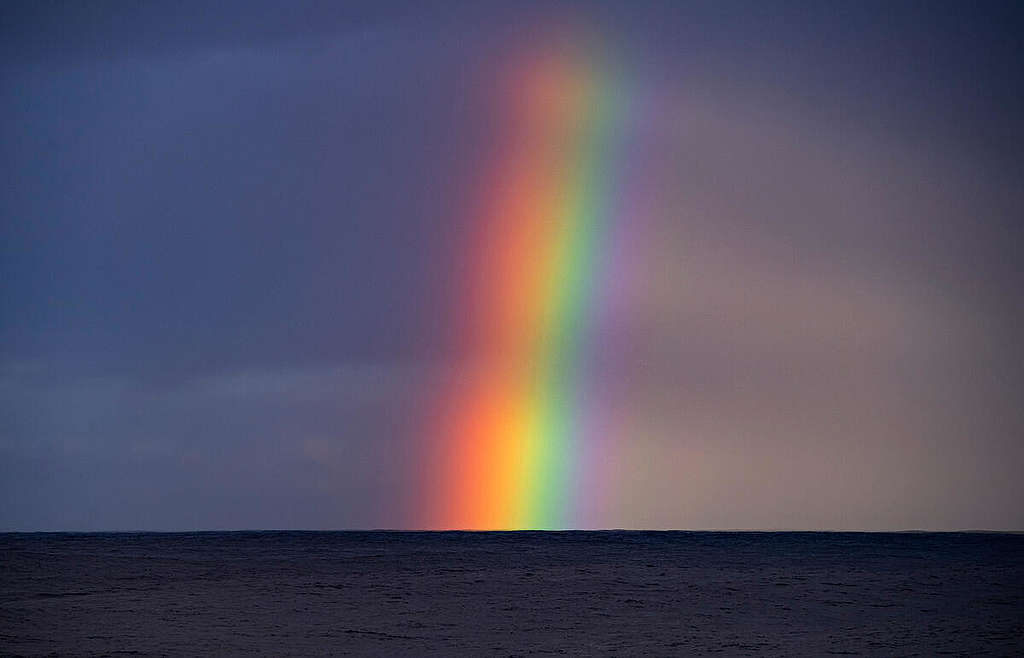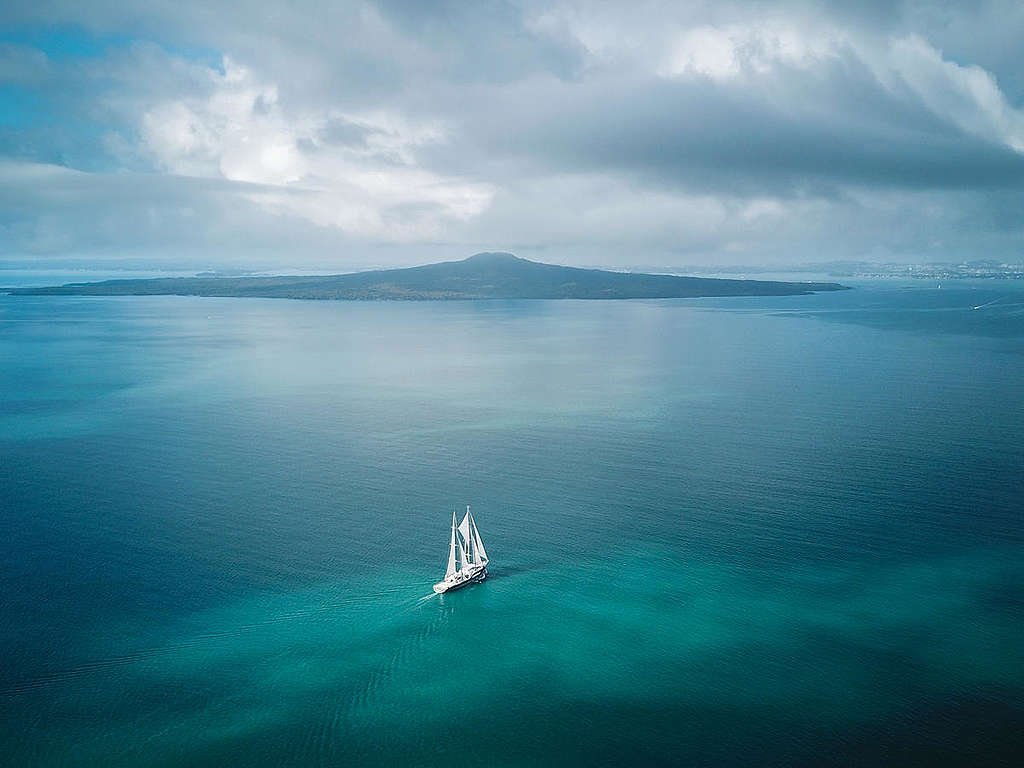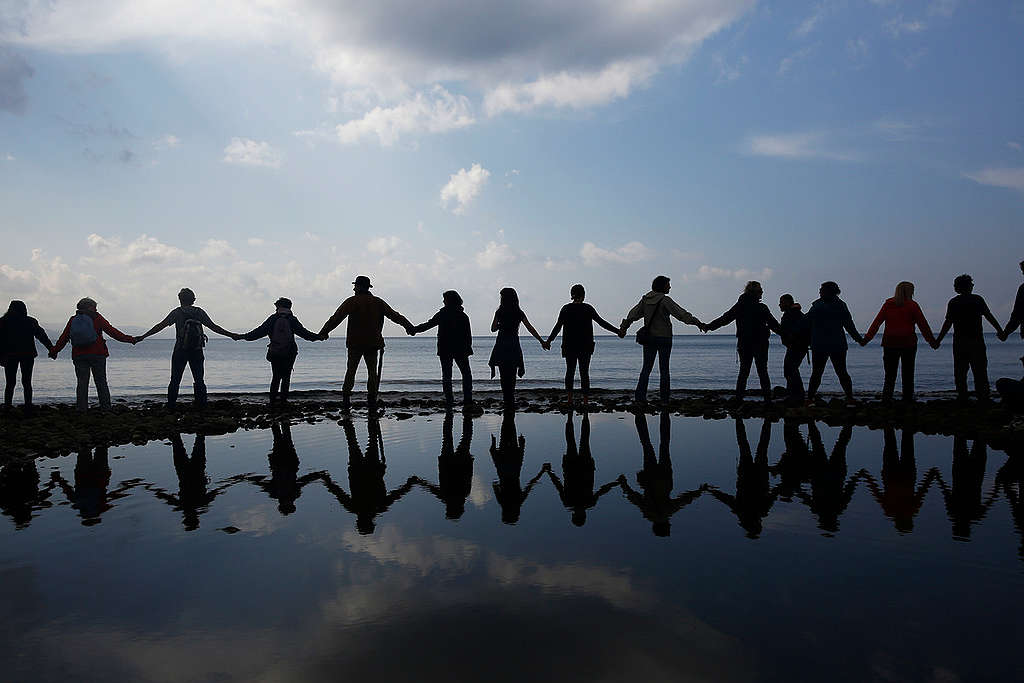Hope is a natural resource too.
Like clean air and fresh water, it keeps us going every day. Like lush forests and pristine coasts, it restores us for tomorrow.
Like too many natural resources, though, hope can feel in short supply these days, endangered by extractivist fossil fuel companies, corporate polluters, and governments that put profits over people.
With fires raging from Siberia and California to the Amazon and floods devastating communities in Belgium, China, and Cuba; while extreme weather events are increasing in frequency and intensity around the world; as the accelerating global biodiversity crisis intersects with a global pandemic; all while Indigenous Peoples continue to find their rights and their lands under threat; even the most dedicated climate defenders can experience moments of grief and anxiety.

It’s a LOT. Like, so much.
So, you know what, it makes sense that each of us will sometimes experience what is being called “climate despair.”
Don’t blame yourself for feeling this way or worry that such feelings mean you’re failing as an activist, as a neighbor, or as a parent.
It’s OK to feel distressed sometimes because the climate crisis is real — and it is here, and everywhere.
But, don’t forget, people power is real — and wherever you are.
Hope is wherever you are, wherever we are, together, as a movement, standing right beside each other even when any one of us feels the most alone.
Amid the continent-spanning wildfire smoke and distressing trending headlines, there are genuine glimmers of hope for the future and many reminders of the power that we have to make a difference.
For 50 years, Greenpeace has put hope into action with the backing of millions of supporters and, working alongside movement allies and local communities around the world, we have helped achieve meaningful victories, from thwarting nuclear weapons tests and winning a commercial whaling moratorium in the 1970s to being part of a landmark legal victory finding Shell liable for climate destruction in 2021. If you ever need a reminder that people who believe in a green and peaceful future — and who are willing to take action — can change the world then please visit this timeline of Greenpeace victories over the years.
Whenever you feel like challenges of the climate crisis are too big and the fossil fueled-powers who want to lock in the worst-case scenarios are too strong, draw strength from the words of Greenpeace founding member Dorothy Stowe:
“It is amazing, what a few people sitting around their kitchen table can achieve.”
Think of those words and remember that together, you and I, we will make a difference. Greenpeace and our allies in the environmental movement will keep making a difference. Indigenous Peoples and frontline communities will keep making a difference. All of us, together, through acts large and small, will lead the just transition to a fairer and more sustainable world beyond fossil fuels.

The challenges we face are huge. But so are the reasons to be hopeful!
As we keep pushing for the safer, more equitable future that we need, let’s draw inspiration from these signs of the progress that people power has already achieved:
- People are winning in courts: Movement-led climate court cases are bringing justice to those most impacted.In just three years climate litigation cases have nearly doubled,
and only last year, an unprecedented number of key judgments with
potentially far-reaching impacts were issued, including on the cases against Shell and against Germany.
- Indigenous-led resistance is stopping pipelines: In
the United States and Canada, 21 fossil fuel projects have been
prevented or delayed by Indigenous-led resistance. That’s the equivalent
of 400 coal-fired power plants’ worth of pollution, according to analysis from the Indigenous Environmental Network (IEN) and Oil Change International.
- Even the International Energy Agency now sees a pathway to 1.5°C:
The IEA, a body created to ensure the security of oil supplies, sees an
energy system dominated by solar and wind, coming with “huge benefits”.
The group has big influence on business and investment strategies and
now says there should be absolutely no investment in new fossil fuel
supply projects, and no further final investment decisions for new
unabated coal plants, and by 2035 no sales of new cars running on oil.
- Solar and wind have become the cheapest forms of new electricity in most of the world, and costs continue to decline.

- The financial sector has finally started to wake up: Some of the world’s largest bond purchasers and asset owners are now pursuing to align their strategies with the Paris Agreement and 1.5°C limit, and some top global investors are moving away from the massive climate-related risks associated with fossil fuels, into building renewable energy.
- Some of the business strategies are starting to look different: Car companies are announcing combustion engine phase outs, energy utilities early coal phase outs and an oil giant announced cuts in their oil and gas production.
- Scientists confirm there is still time to make a big difference: The latest report by the Intergovernmental Panel on Climate Change (IPCC),
a group of the world’s top climate scientists convened by the United
Nations, confirms not only that human influence has unequivocally warmed
the climate but also that we still have time to stave off the worst-case warming scenarios if we achieve rapid and widespread reductions in carbon emissions. We know what we have to do — we just need to do it.
I know that none of this is enough, not even close.Not yet. But all of it points to new potential for change. All of it gives us reason to keep hoping and to keep putting that hope into action.
Remember that most of these developments would have seemed impossible just a few years ago. We are making progress. Now we must speed up and scale up for good, with massive public pressure.
In order to do that we must maintain and preserve our reservoirs of hope just like we protect forests from industrial agriculture and oceans from deep sea mining.
Hope is not a strategy but it’s still a necessity.
We need to believe we can — and will — win if we are going to
practice the radical honesty, empathy, and creativity needed to move
beyond incremental action toward complete system change. But believing
doesn’t mean ignoring the devastation around us or shutting down
feelings of sadness at what is lost or even anger at those responsible.

Climate despair is real, but so is climate hope.
This is not an easy moment, but it is our moment if we seize it together.
about the author
Chris Greenberg
Chris Greenberg is an editor for Greenpeace International based in Brooklyn, New York.

No comments:
Post a Comment
Note: Only a member of this blog may post a comment.